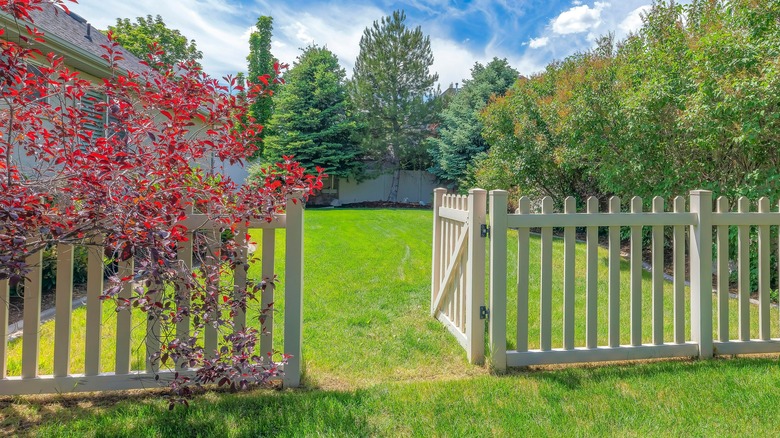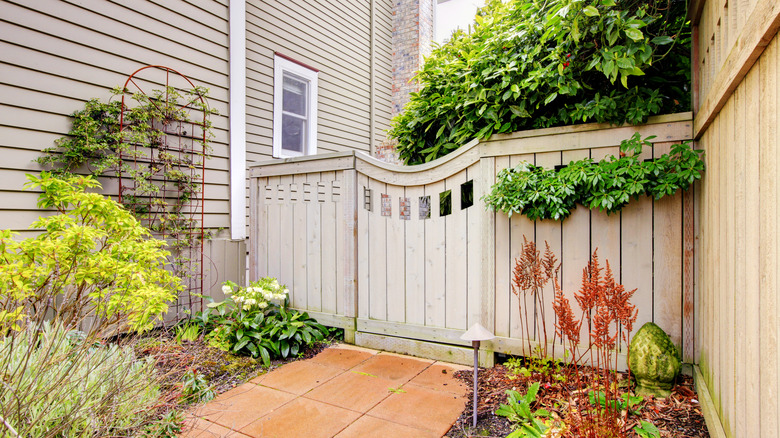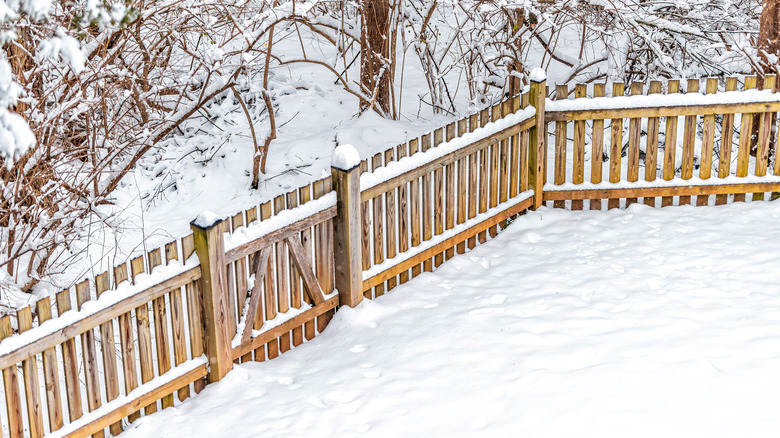Backyard Gates: How To Decide If They Should Swing In Or Out
When it comes to security, privacy, and functionality, your backyard gate plays a pretty important role. That's why its directional swing should be based on a few different aspects. From a traditional standpoint, both front and back gates tend to open inwards towards your home, however, you want the direction to be both practical and functional – have you ever noticed how when your hands are full, it's much easier to push open a door as opposed to pulling it towards you?
It's also important to note that having a garden gate that swings outwards could also put you at odds with the law, depending on your city's building codes and regulations. That being said, it's not unheard of to have backyard gates that swing against the grain. For some houses, like those with curved fences or sloped driveways, this is often unavoidable. But, what it ultimately all comes down to is personal preference, and of course, what works best for your living space.
Privacy and security
Inward-swinging gates offer a bit more protection and privacy as opposed to those that swing outwards. Having a gate that swings inward helps block the view of your backyard upon entry. You can simply squeeze in and shut the door behind you without having to open it toward you, which may leave you feeling vulnerable and exposed.
Solid wooden or metal gates offer the best in terms of privacy and security if keeping your home safe is your main priority. That being said, solid fencing allows you no visibility whatsoever and can make your outside area feel confined. If you have pets or small children, an inward opening gate can help keep them safe and contained. Both kids and dogs can be pretty crafty and easily learn how to push gates and doors open. So having an inward swinging back gate will give you more peace of mind.
A few things to keep in mind
You'll want to check city and state regulations if you already have an outward swinging gate, or are thinking of installing one. Each municipality has its own rules and regulations regarding a gate's particular closing direction. For example, in some cities it's actually illegal for your fence to open up outwards if your property bunks up next to a public walkway, per Code Library. This would essentially obstruct passersby from using the sidewalk.
If you live in an area with high winds, you'll want to take that into consideration, too. Depending on the material your fencing is made of, if the gate opens against the wind, it might be difficult to open — or a feisty wind gust could slam it closed. This can lead to not just bodily injury but also damage to the actual door, hinges, and fence. When in doubt, you can always invest in a sliding gate or install one with double hinges, which would give the door a full range of motion into or out of your backyard.


